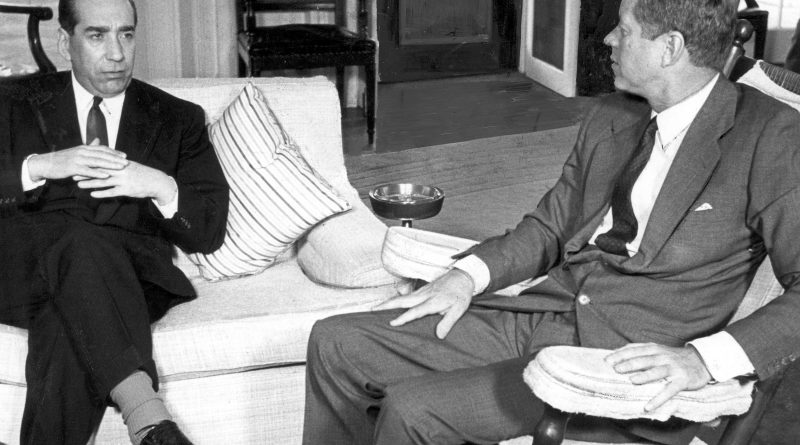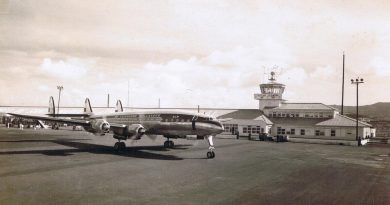Portugal and the Cuban Missile Crisis
Fidel Castro’s Cuba was the epicenter of the most important crisis between the United States and the Soviet Union during the Cold War: in late October 1962, both countries came to the brink of war over the Cuban missile crisis. This episode had a direct impact in the relations between Portugal and the United States, which were at a low point since President John F. Kennedy had adopted a new African policy. The new administration, which took office a few days before the beginning of the war in Angola, decided that “Africa should be for the Africans” and that European colonialism in that continent should cease to exist.
This new policy led to a major crisis in terms of Portuguese-American relations but it was always tempered by the American interest in maintining their military base in the Portuguese islands of the Azores. The Lajes Base was crucial in strategic terms and the existing agreement would end on December 31, 1962. Throughout the Kennedy years, the Pentagon constantly reminded the White House and the Department of State of the crucial military and strategic importance of the base in the context of the Cold War. The Cuban Missile Crisis would provide the military with the perfect example of how the Azores base and the Cold War were more important than Angola and anti-colonialism to the overall US strategy.
In fact, during the missile crisis, the Azores were essential for the surveillance of Soviet submarine activity in the Atlantic. In October 23, the American services in the Azores detected a Soviet submarine crusing the Atlantic. In a meeting with President Kennedy and his closest advisers, Robert McNamara, Secretary of Defense, mentioned that a Soviet ship had been sent to the Atlantic Ocean “to fuel a submarine… which did fuel and was observed fueling.” The submarine was “obviously going to move into a Cuban area.” Roswell Gilpatric, Deputy Secretary of Defense, confirmed the submarine had been “just fueled yesterday in the Azores.”
The Portuguese Minister of Foreign Affairs, Franco Nogueira, was in Washington during the Cuban missile crisis, and on October 24 he met with President John Kennedy, Secretary of State Dean Rusk, and also several officials from the Department of State. Both Kennedy and Rusk asked Nogueira for assurances that the Portuguese would not put any restrictions to the use of the Azores base due to the “present emergency”, and asked for “some public declaration, even a vague one” by the Portuguese government. Nogueira replied to Rusk that he could not make such affirmation “precipitately, and without obtaining adequate guarantees and compensations.” The Portuguese minister confessed this was a “governmental problem that in no way I could solve alone.” Rusk insisted in his request evoking the international state of “emergency.”
Later that day, after receiving Nogueira’s report, Oliveira Salazar only authorized the Portuguese representative in the North Atlantic Council to make a formal statement regarding the Cuban crisis. The Portuguese government, recognizing the existence of a “serious threat to the United States and therefore to the security of the West”, believed that NATO countries should “state their solidarity with the measures taken by the United States government”. This belief was reinforced by the fact that “the Portuguese government has always considered, in relation to any attack on positions where the defense of the interests of the West are at stake, that this solidarity should be indivisible.” The last phrase of the Portuguese statement was a clear allusion to the situation in Angola, where the Portuguese government had always considered that the interests of the West were “at stake.” Although the United States had asked for a formal declaration of solidarity and availability of the bases, the official Portuguese declaration would be made only in a NATO context and did not contain any specific reference to the Azores.
The Cuban crisis had profound consequences for Portuguese-American relations. From 1962 onwards, the United States changed again its policy regarding Portuguese colonialism. Not only the United States delegation at the United Nations (USUN) began to abstain or to vote against resolutions on Portuguese territories, but the Kennedy administration also authorized several sales of military equipment to Portugal. Public declarations by American officials criticizing Portuguese colonialism almost disappeared and contacts with Angolan nationalists were significantly reduced. The USUN and the Department of State were even forbidden to receive Holden Roberto from late October 1962 onwards.
Certainly, the Cuban episode was not the only factor in this reversal, but it reminded American officials, and especially the White House, of the importance of the Azores in one of the most delicate periods of the Cold War. With the fear of losing aceess to the Azores, the United States adopted more moderate policies and abandoned some of the more bold policies it had followed in the previous months. “Unexpectedly, and seemingly remote,” Nogueira concluded, the Cuban crisis “marked a cornerstone in bilateral Luso-American relations.”
[adapted from Luís Nuno Rodrigues, To the "top of moutain" and "down to the valley": the United States and Portugal during the Kennedy presidency. Sources mentioned in the original document; Photo from Diário de Notícias Archive]
![]() This work is licensed under a Creative Commons Attribution-NonCommercial-ShareAlike 4.0 International License.
This work is licensed under a Creative Commons Attribution-NonCommercial-ShareAlike 4.0 International License.




